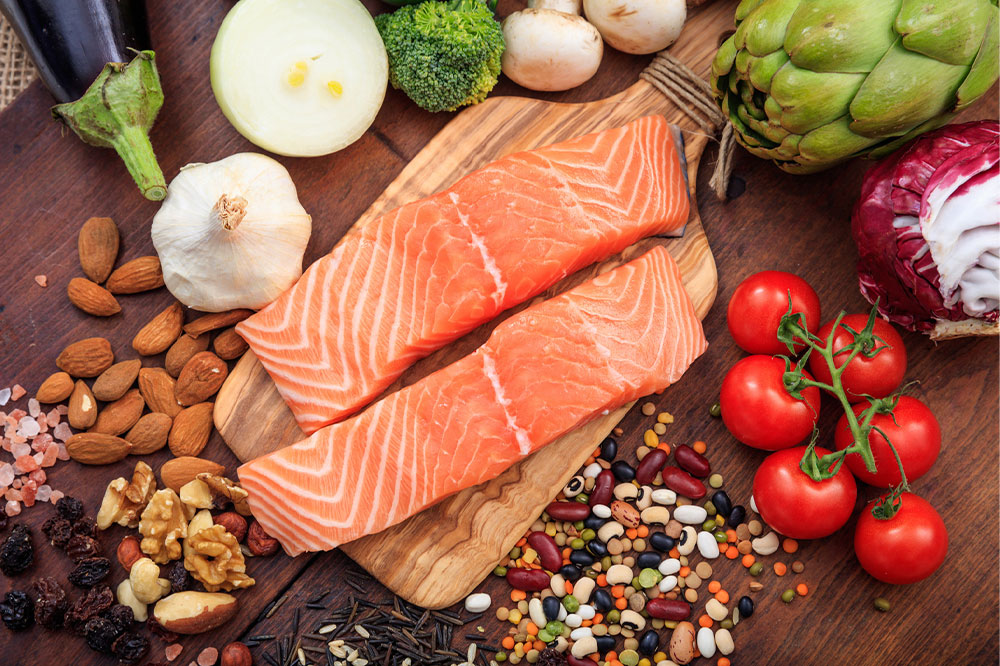3 ways to manage prostate cancer
Prostate cancer develops in the prostate gland and spreads to other body parts. There are about 268,490 new cases of prostate cancer each year. Each person experiences varied symptoms, but erectile dysfunction and bone pain are two of the significant signs of the condition. If detected early, it is possible to slow the progression. Here are a few treatment options, food habits and lifestyle tips that may help manage the symptoms of prostate cancer:

Chalk out a treatment plan with your doctors
Once the cancer is diagnosed, it is imperative to start the treatment process immediately. Here are two prescriptions that may be recommended by the doctor to treat prostate cancer.
- Xofigo® (radium Ra 223 dichloride)
It is administered as an injection to treat prostate cancer that no longer responds to hormonal or surgical treatment for testosterone reduction. Xofigo® is further given to individuals where prostate cancer and its symptoms have spread to the bone but not yet reached other parts of the body. - XTANDI® (enzalutamide)
XTANDI® is administered orally to patients with castration-resistant prostate cancer (CRPC) and those with metastatic castration-sensitive prostate cancer (mCSPC). XTANDI® must be given once a day as per the doctor’s prescription. -
Erleada®
Erleada® is an FDA-approved prescription suggested for managing prostate cancer that has spread to other parts of the body post metastasis. It is also prescribed for patients whose cancer has not spread beyond the prostate but who remain unresponsive to surgical treatments done for lowering cancer risk.
5 foods to eat
- Garlic
Allium foods like garlic are rich in cancer-combating compounds like allicin, flavonoids, selenium, and allyl sulfides. These plant compounds together promote antibiotic, antifungal, and anti-inflammatory responses to lower cancer risk. - Berries
Cranberries, blueberries, and strawberries are loaded with rich antioxidants that help fight free radical damage caused by cancer cells. - Tomatoes
This citrus rich fruit is loaded with a natural plant compound called lycopene. Studies suggest this antioxidant lowers the risk of cell damage and slows down cancer progression. - Flax seeds
Flax seeds also help reduce the levels of prostate-specific antigens to slow down the aggression of cancer cells. - Broccoli
Broccoli sprouts contain sulforaphane, a phytochemical that actively fights cancer cells and slows progression. It is one of the superfoods suggested during prostate cancer treatment for better recovery.
While it isn’t clear if foods can eliminate prostate cancer, eating healthy meals can ensure the immune system stays strong, which can prevent the risk of prostate cancer and other diseases. Apart from the foods mentioned above, some other fresh fruits, herbs, and vegetables may also nourish the body with anti-cancer nutrients. Moreover, adding fresh fish to one’s meals can increase omega-3 fatty acid levels in the body. However, one must avoid foods that are rich in trans-fats, preserved foods, and red meat as they can increase the risk of prostate cancer.
Adopt healthy lifestyle habits
Apart from seeking treatment and getting the right nutrition, patients need to make proper lifestyle choices. Simple exercises like walking, gardening, or swimming are some ways to ensure fitness. Exercising can also help prevent the risk of other health complications due to an underlying disease. Reading, practicing yoga, and deep breathing exercises may also help relieve stress and cope with the condition.